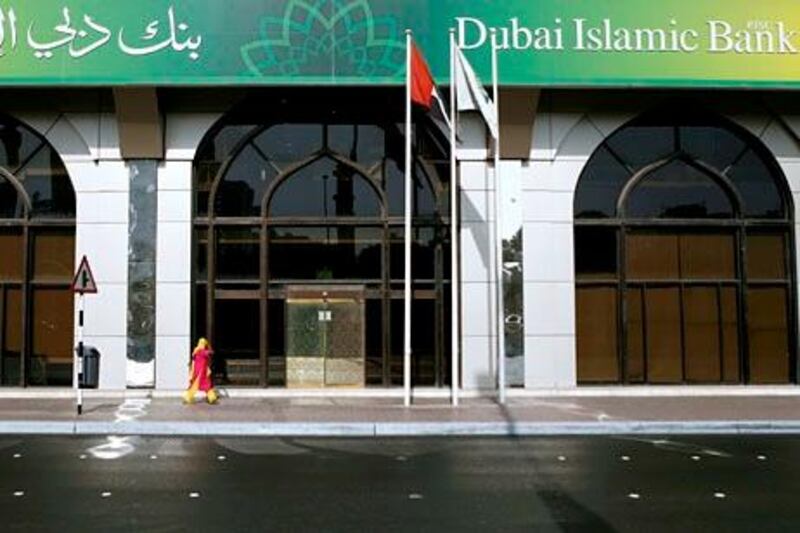Dubai Islamic Bank (DIB) has hired banks to prepare a sukuk sale that asset managers say reflects an increasing appetite for risk among global investors.
The world's first Sharia-compliant commercial lender said it had hired Emirates NBD Capital, HSBC, National Bank of Abu Dhabi and Standard Chartered for investor roadshows beginning next week.
A benchmark dollar perpetual Tier 1 sukuk may follow, "subject to market conditions", the bank said in a statement to the Dubai Financial Market.
This Islamic bond is a particularly complex instrument and “right at the riskier end of what we’ve seen to date out of the GCC”, said Doug Bitcon, the head of fixed income and portfolios at Rasmala Investment Bank.
“We don’t need a DIB transaction to tell the market whether there’s risk appetite for high-yield assets. We know that,” he added. “Fund and portfolio managers are looking down the credit curve. The only question is how far down the credit curve are they prepared to move.”
Investors typically demand that riskier bonds pay a higher yield, but yields have steadily fallen on most UAE credit during the past year as local markets are flooded with liquidity unbottled by central banks’ crisis-era easing measures.
With many of these expected facilities to be unwound by the end of next year, banks are advising caution on Islamic bonds and other debt.
Tier 1 capital raises are “equity-like” insofar as they are riskier for investors, while as a “perpetual” instrument the security does not have a fixed maturity at which the bond must be repaid. A benchmark bond is usually about US$500 million (Dh1.83 billion).
In a landmark deal, Abu Dhabi Islamic Bank successfully raised $1bn of Tier 1 capital this year in a deal that was heavily oversubscribed.
DIB is viewed as riskier by markets because of uncertainties around whether it has finished provisioning for its pre-crisis lending.
It is the most thinly capitalised of the UAE’s big lenders, and also faces significant costs in absorbing its mortgage lending subsidiary Tamweel.
The Central Bank blocked DIB from paying the shareholder dividend it had sought last year because of its low liquidity, and the lender was forced to cut its payout to investors.
DIB’s sale was likely to meet with plenty of demand from the region’s investors who are still hungry for sukuk, said Zafar Khan, the chief executive for the Middle East and North Africa at Falcon Private Bank.
“In this region there’s a huge demand for bonds, but most of this demand is coming for Islamic bonds,” he said. “There’s still a lot of value for debt market from this region … People are issuing more sukuk than conventional bonds.”
Total returns on the HSBC/Nasdaq Dubai GCC US Dollar Sukuk Index have increased just 0.7 per cent this year, compared with a return of 4.9 per cent for the MSCI World index of global equities during the same period.
Standard & Poor’s, the ratings agency, said this week it expected Arabian Gulf sukuk issuance this year to remain at “elevated” levels, but a number of banks including Société Générale, Merrill Lynch and Coutts believe that the sukuk rally of the past few years has run out of steam and returns could soon start to diminish.
[ ghunter@thenational.ae ]





